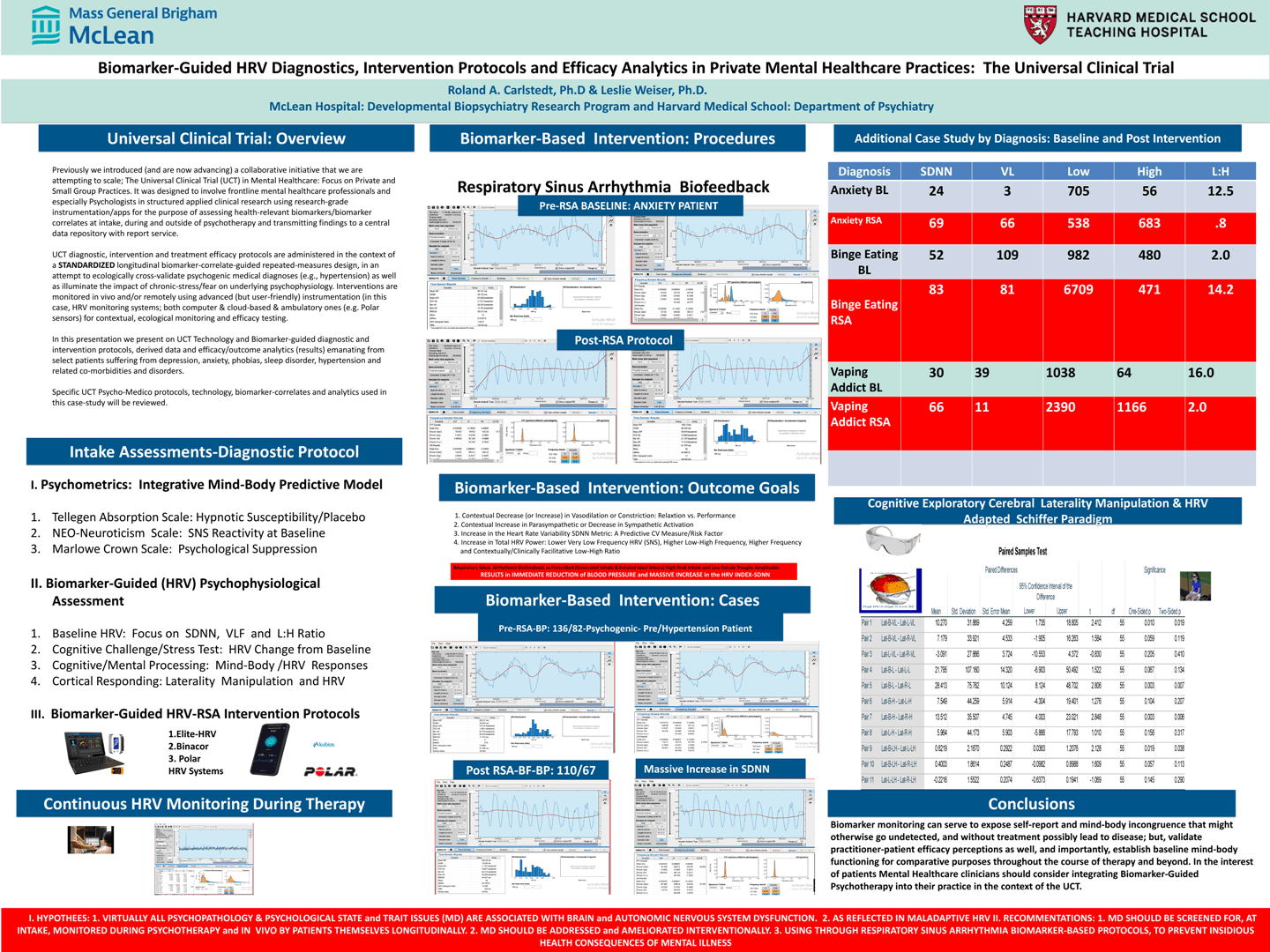Scientific Abstract
Background We introduced and are advancing a collaborative initiative: The Universal Clinical Trial (UCT) in Mental Healthcare. It was designed to involve frontline mental health professionals in systematic, ecological clinical research for the purpose of assessing health-relevant biomarker correlates at intake, during and after psychotherapy. UCT diagnostic and intervention efficacy protocols use a standardized intra-individual repeated-measures design, to cross-validate psychiatric diagnoses using biomarkers. Interventions are monitored with HRV Apps for response analytics and treatment efficacy determinations. An overview of pilot, biomarker-guided diagnostic and intervention findings from patients with a variety of mental disorders is presented. HRV-Respiratory Sinus Arrhythmia biofeedback (RSA) serves as a primary and adjunctive treatment modality.
Methods Patients’ baseline HRV was monitored for two minutes. Thereafter, RSA was engaged in for two minutes followed by a post RSA 2 min. baseline. An exploratory cerebral laterality-affect manipulation (CLM)-HRV procedure was also administered.
Results RSA was associated with 50 to >100% gains in SDNN (a predictive cardiologic status factor) in all patients (n=20). A central aim of the data analysis was to assess the clinical significance (CS) of RSA mediated changes in HRV at the intra-individual level. CS takes precedence over conventional inferential-based group statistical efficacy metrics, since they may not generalize to all patients. Ultimately, CS should be based on individual patients’ responses. CLM led to lateralized changes in HRV. A selection of single-case findings that reveal the potency of RSA will be presented in tables in our poster and remote session.
Conclusions RSA emerged as a strong mediator of immediate, significantly increased SDNN and reduced BP. Our preliminary findings are consistent with extant and newly emerging research attesting to RSA’s impact on risk-factor/symptom amelioration and enhancement of mind-body self-regulatory responses. HRV-guided intake, intervention and efficacy testing protocols should be routinely applied in psychotherapy practices.
Search posters

